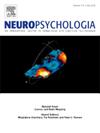Assessing sensitivity to semantic and syntactic information in deaf readers: An ERP study
IF 2
3区 心理学
Q3 BEHAVIORAL SCIENCES
引用次数: 0
Abstract
An ERP study by Mehravari et al. (2017) found deaf and hearing readers had similar N400 effects to semantic violations, but only hearing readers showed a P600 effect to verb agreement violations. To assess whether lack of sensitivity to agreement was due to early language deprivation, we presented the same stimuli (and a phrase structure violation condition) to deaf readers with early ASL exposure and a reading-matched hearing group. We also examined N400 “wrap up” effects for sentence final words. Both groups exhibited an N400 effect for semantic violations (larger negativities for errors), although the effect was unexpectedly weak for hearing readers. At the violation, only hearing readers exhibited a P600 for verb agreement violations (larger positivities for errors), indicating that the previous findings are not explained by language deprivation. Crucially, both groups exhibited an N400 effect on the sentence-final word for agreement violations – despite poor performance on the acceptability judgment task. Both deaf and hearing readers showed a robust P600 to phrase structure violations. We interpret this overall pattern as indicating that deaf readers engage in monitoring strategies whereby English phrase structure, but not verb morphology, is anticipated during reading, and that both groups exhibit neural sensitivity to grammatical errors during sentence final integration processes. The amplitude of the P600 for grammatical violations was correlated with reading skill only for hearing readers. We conclude that reading strategies for skilled deaf readers who are bilingual in ASL differ from hearing monolingual readers with similar reading skills.
评估聋人读者对语义和句法信息的敏感度:一项ERP研究。
Mehravari、Emmorey、Prat、Klarman和Osterhout(2017)的ERP研究发现,聋人和听力正常的读者对语义违规具有相似的N400效应,但只有听力正常的读者对动词一致性违规具有P600效应。为了评估是否由于早期语言剥夺而缺乏对一致性的敏感性,我们向早期接触美国手语的聋人读者和阅读匹配的听力组提供了相同的刺激(和短语结构违反条件)。我们还研究了N400对句子最后单词的“wrap up”效果。两组在语义违反方面都表现出了N400的效应(对错误的负面影响更大),尽管对于听力正常的读者来说,这种效应出乎意料地弱。在违规行为中,只有听力阅读者在动词一致性违规行为上表现出P600(错误的正确率更高),这表明之前的发现不能用语言剥夺来解释。至关重要的是,尽管在可接受性判断任务中表现不佳,但两组在违反协议的句子最终词上都表现出了N400的效应。聋哑人和听力正常的读者都对短语结构违规表现出强烈的P600。我们将这一整体模式解释为,聋人读者在阅读过程中参与了英语短语结构而不是动词形态的监测策略,并且两组人在句子最终整合过程中都表现出对语法错误的神经敏感性。语法违例的P600振幅仅与听力读者的阅读技能相关。我们得出结论,熟练的美国手语双语聋人读者的阅读策略不同于具有相似阅读技能的听力单语读者。
本文章由计算机程序翻译,如有差异,请以英文原文为准。
求助全文
约1分钟内获得全文
求助全文
来源期刊

Neuropsychologia
医学-行为科学
CiteScore
5.10
自引率
3.80%
发文量
228
审稿时长
4 months
期刊介绍:
Neuropsychologia is an international interdisciplinary journal devoted to experimental and theoretical contributions that advance understanding of human cognition and behavior from a neuroscience perspective. The journal will consider for publication studies that link brain function with cognitive processes, including attention and awareness, action and motor control, executive functions and cognitive control, memory, language, and emotion and social cognition.
 求助内容:
求助内容: 应助结果提醒方式:
应助结果提醒方式:


